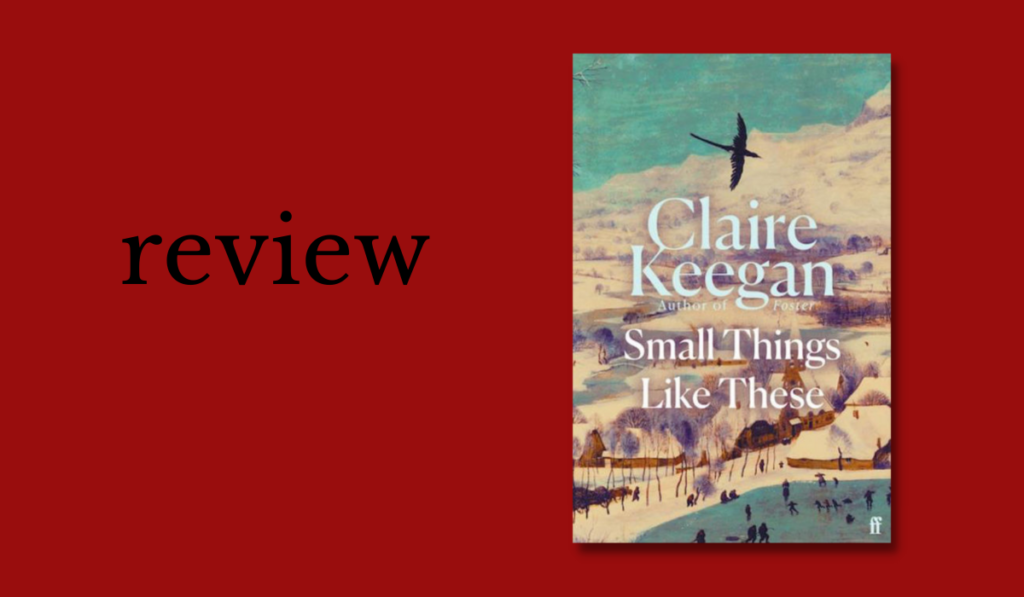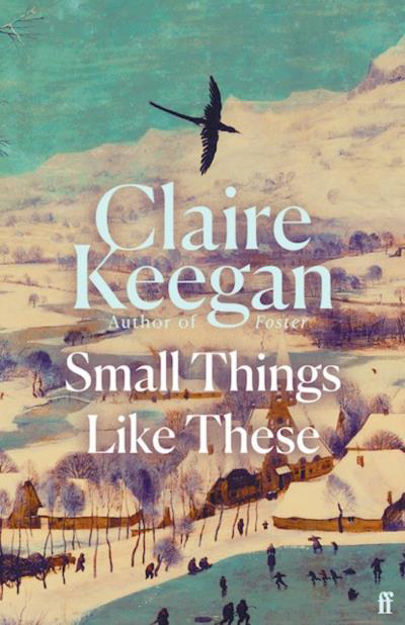
Small Things Like These|Claire Keegan|Faber|ISBN:9780571368686|€10.99
“…a compelling lesson that whether we live in small, insular communities or in the easy, safe anonymity of big cities we should still look out for each other when the power systems that claim to look after the weakest in society fail us.” —Laura King reads Small Things Like These, by Claire Keegan
by Laura King
Small Things Like These cuts to the heart of small town life and rural Ireland in the 1980s.
Billy, the local coal and timber merchant, ensures that everyone has what they need to get through another hard winter. He brings to mind some of the leading men in Donal Ryan’s novels; he is hardworking, loyal, sensitive, and in some ways is too soft for the world around him.
Billy’s wife is quick to point out that he is generous to a fault; he works himself too hard and could easily be taken advantage of. However, we are left in no doubt that this is a noble quality in a cynical world, that an act of courageous kindness can make a difference to those in need. Billy has had a good, honest life—but he had an inauspicious beginning.
His mother, who worked at the Big House in the town, became pregnant and was taken in by her employer Mrs White—saving her and her child from the nearby Mother and Baby home.

While Billy grew up in a safe, stable home, he is conscious of not having known his father, and is anxious about his capacity to be a good parent to his own children. He doesn’t always behave perfectly, which only makes him more human—but it’s his strong respect for right and wrong which is the focus of the novella.
The story is simple and succinct with the shadow of institutional greed and abuse looming large over the small town.
Right from the outset, there is a sense that people are browbeaten by consistently miserable weather, described as a malignant force which they ‘unhappily endure’: it is what they are used to, and it is out of their control.
Keegan wastes no time illustrating how the people in the town, just trying to get by as best they can, are at the mercy of more powerful forces, both the hold of the Church and the fraught economic climate at the time. It quickly becomes clear that everyone is so focused on their own problems that they either don’t look at what is happening around them, or don’t want to disturb anything and make their own situation worse.
The ending, with Billy risking bringing trouble on himself and his family in order to help a lost soul, is left somewhat open. But it is a call to arms—a reminder that the past is still part of the present, and of the collective responsibility and shame over the secrecy that allowed so many women and children to be wronged in Ireland’s recent history.
Here is a compelling lesson that whether we live in small, insular communities or in the easy, safe anonymity of big cities we should still look out for each other when the power systems that claim to look after the weakest in society fail us.

Laura King works in publishing in Dublin, and in her spare time reviews books online under the name @lauraeatsbooks











